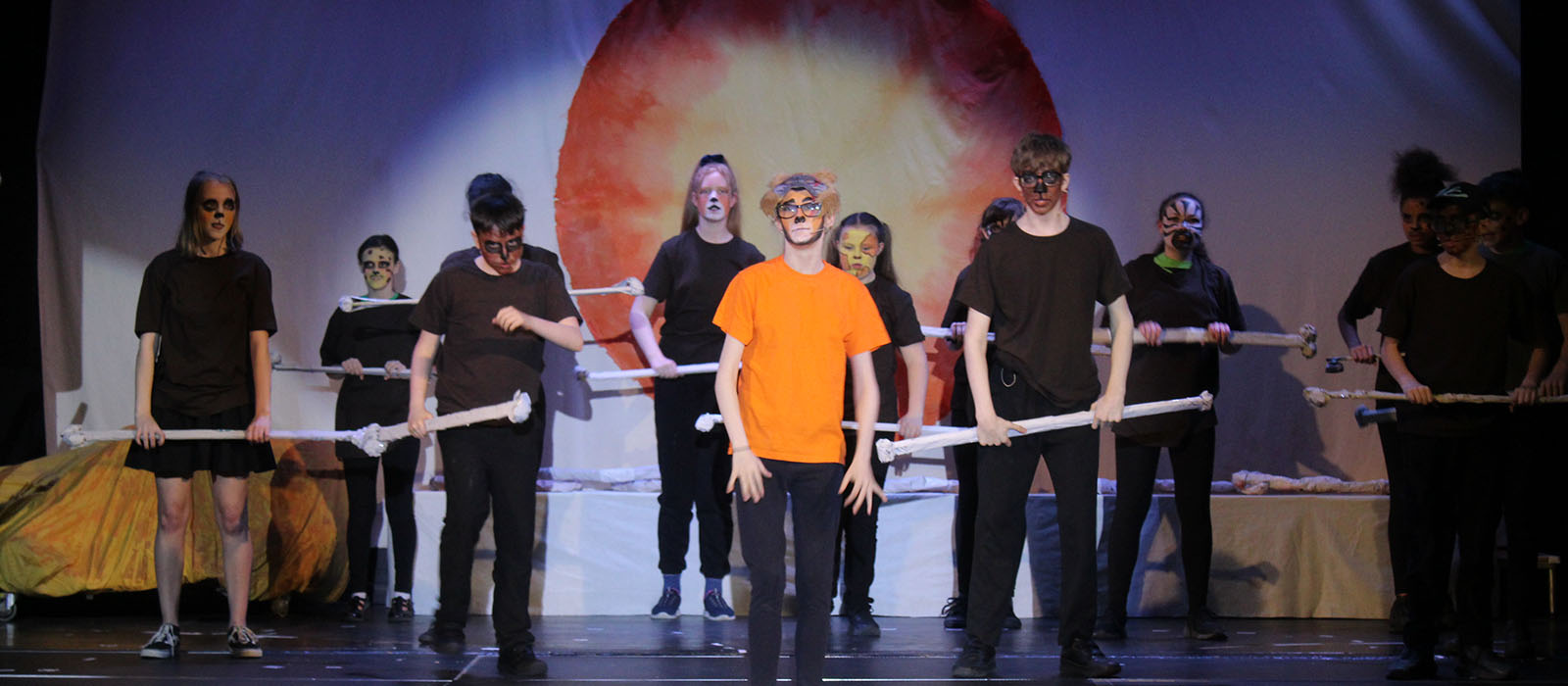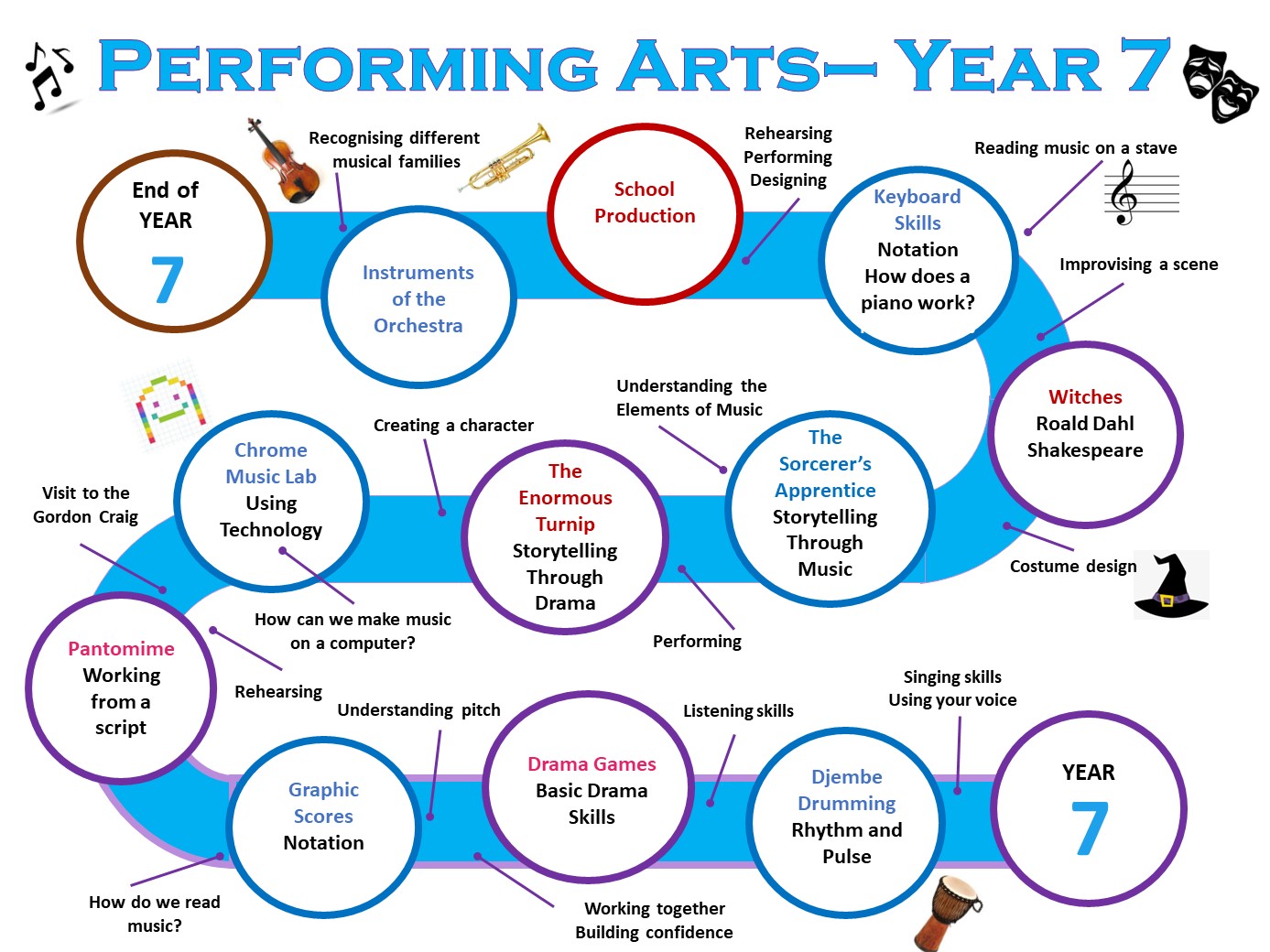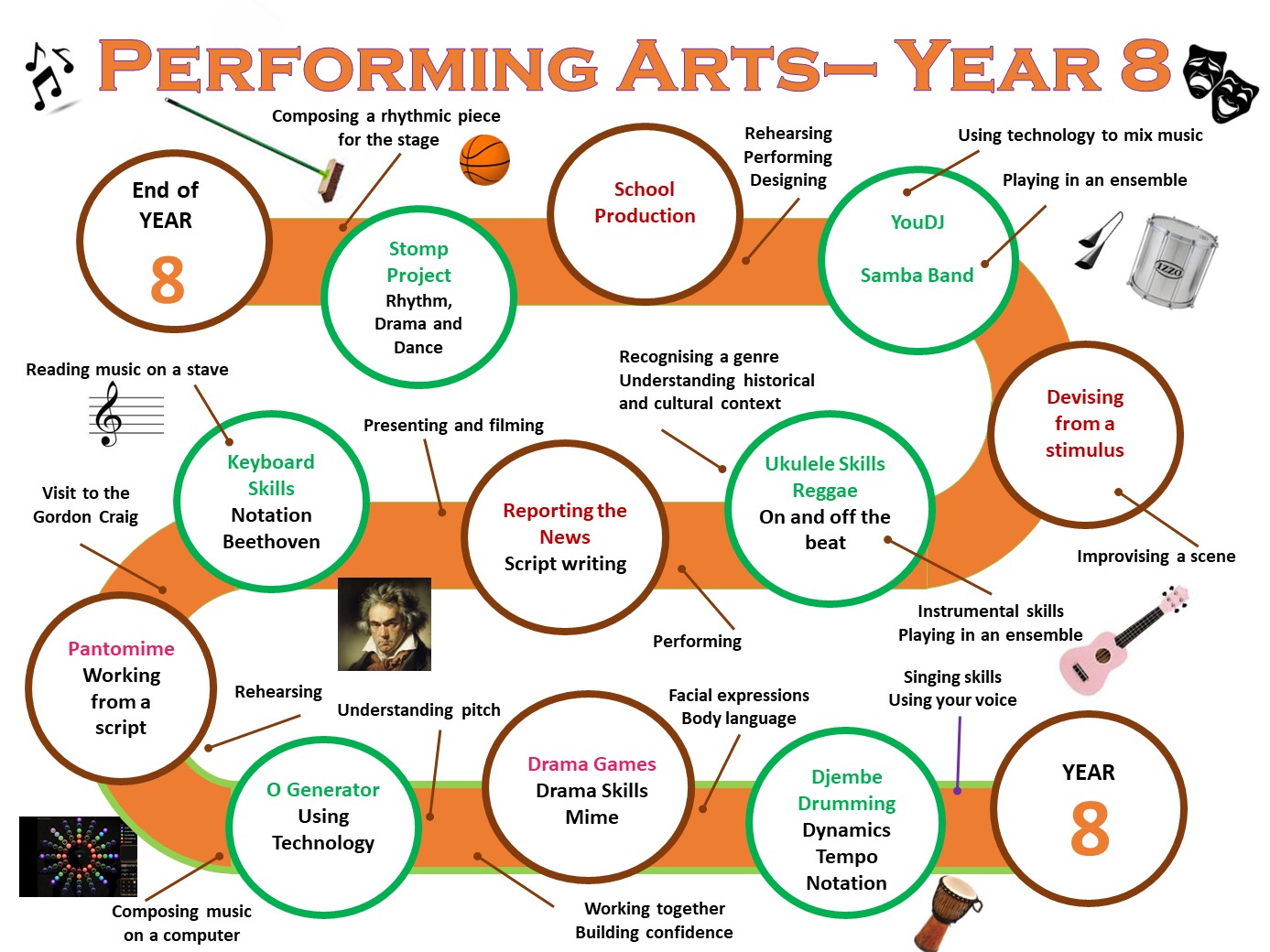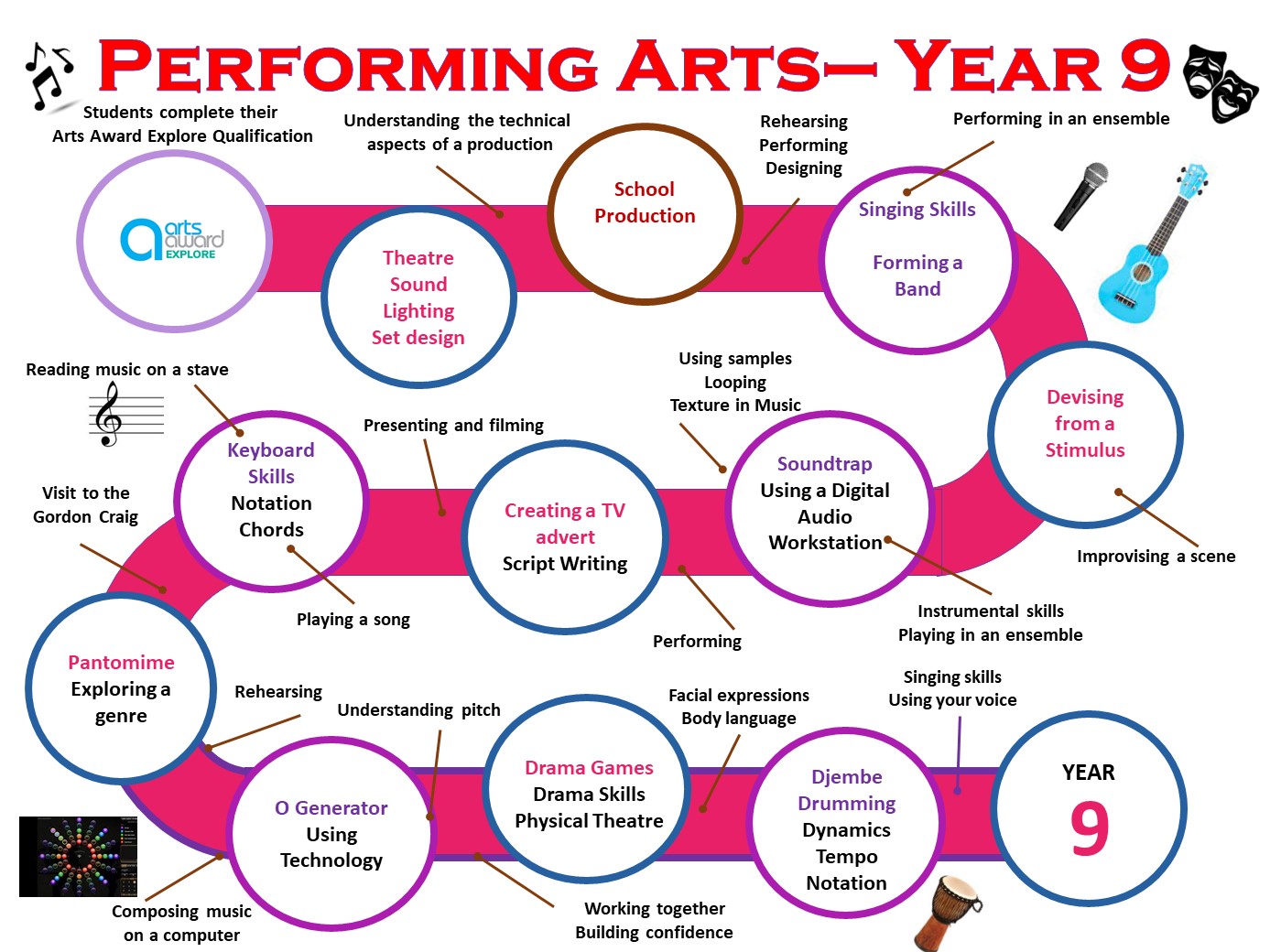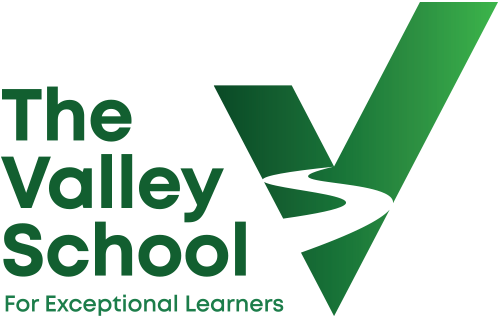Intent – What are we aiming to achieve through our curriculum?
- To develop a love of Music and Drama
- To use Music and Drama skills to support and enhance social interaction and confidence
- To develop communication skills to express emotions, thoughts and ideas through a range of creative techniques
- To develop literacy skills through lyric based song writing and script writing projects
- To engage with Performing Arts as a therapeutic media, developing students’ emotional self-regulation skills
Implementation – How are we delivering our curriculum?
- Students have access to Performing Arts (music and drama) which is differentiated to meet their learning needs and styles
- The Performing Arts curriculum challenges students appropriately to reflect their individual stages of development
All pupils will have opportunities to:
- Use their voices in a range of singing activities
- Learn to play a wide range of musical instruments
- Listen to and appraise different types of music
- Use technology to support their composing and understanding of the elements of music
- Learn to develop a character through the use of their voice and body language
- Explore different styles of drama
- Develop confidence through drama rehearsals and performance in pieces which are both scripted and improvised
- Develop communication skills through practical group work
- Develop their performance skills in both Music and Drama informally during lessons and in school concerts and productions
The Performing Arts curriculum offers opportunities for cross-curricular learning, including:
- Workshop days and visiting artists
- The opportunity to experience professional performances both in and outside of school
- Individual and group instrumental/vocal lessons
- Communication development through music and drama skills, such as speaking and listening activities, song and script writing projects, collaborative projects for example set and costume design
- Development of ICT skills through music and drama work, such as use of music sequencers and video editing software
Assessment
- Project work and performances are stored digitally for reference with some pieces being shown in school to celebrate achievements with peers and families
- Students’ progress is regularly logged in a statement tracker to reflect their ongoing development in lessons
- Students are encouraged to develop both their self and peer assessment skills, focussing around positive statements such as ‘What went well…’ and ‘I think it would be even better if…’ to build their constructive feedback skills
- At the end of KS3 (Year 9), students are offered the opportunity to complete their Arts Award Explore
- Students in Key Stage 4 can choose to take a Music or Drama module which contributes to a larger Vocational Skills BTEC
- Students in KS4 are offered the opportunity to complete their Bronze Arts Award
- Students in KS4 who have had regular instrumental or vocal sessions will gain a Sounds of Intent qualification
Impact – What difference is the curriculum making to our students?
- Students’ confidence and social ability increases as they progress through the curriculum, with life skills such as speaking with clarity in front of others showing noticeable development. This not only benefits them in other subjects, such as English, but also in their life post-school
- An increase in students’ enjoyment and appreciation of Performing Arts, with some pupils choosing to pursue it further outside of school and to continue to study the subject after KS4
- A significant number of pupil choosing to participate in extra-curricular activities including the school production
- The majority of pupils will meet or exceed their expected progress in music and drama.
- Where pupils take a qualification, the majority will meet or exceed their expected outcomes.


